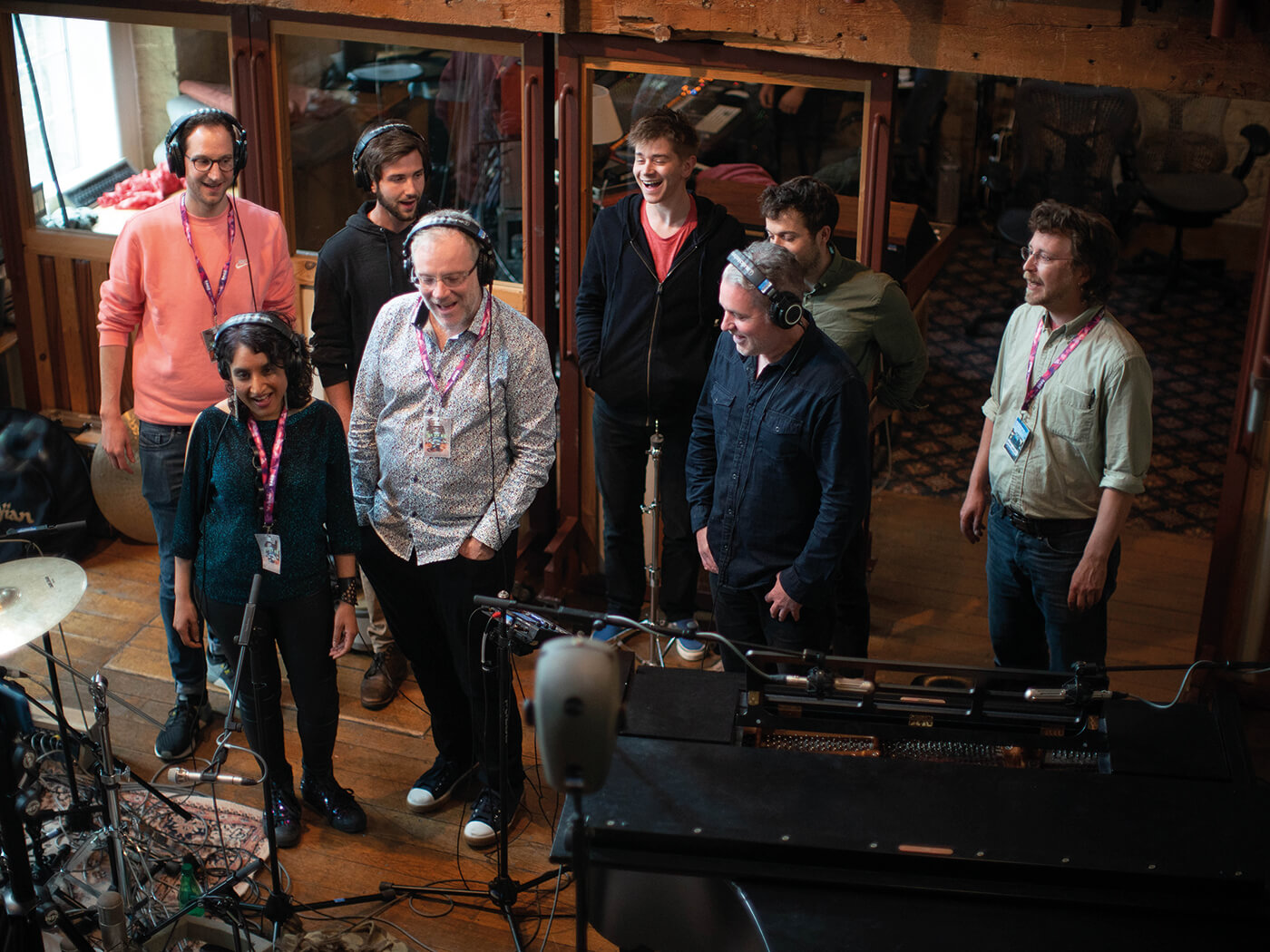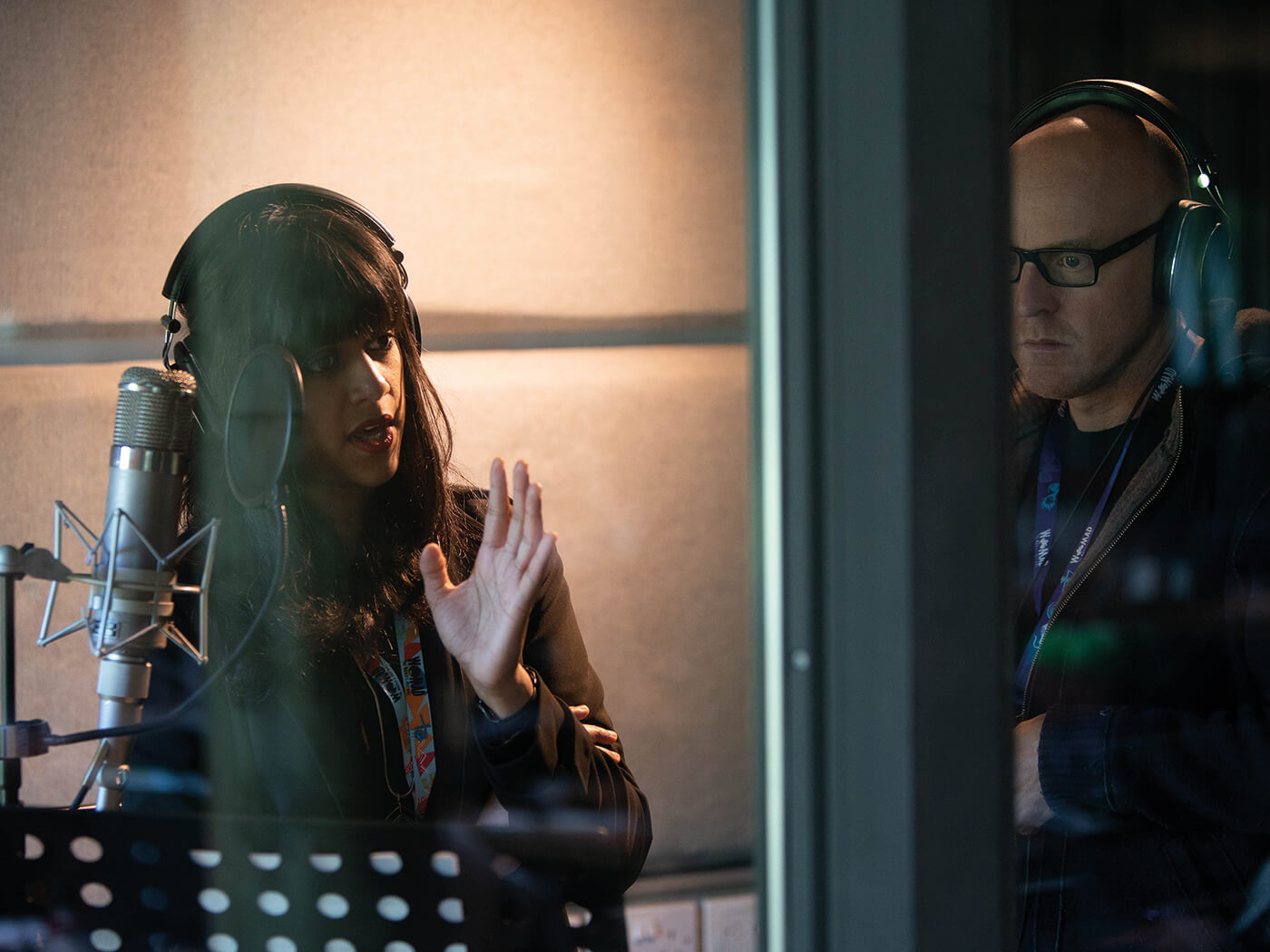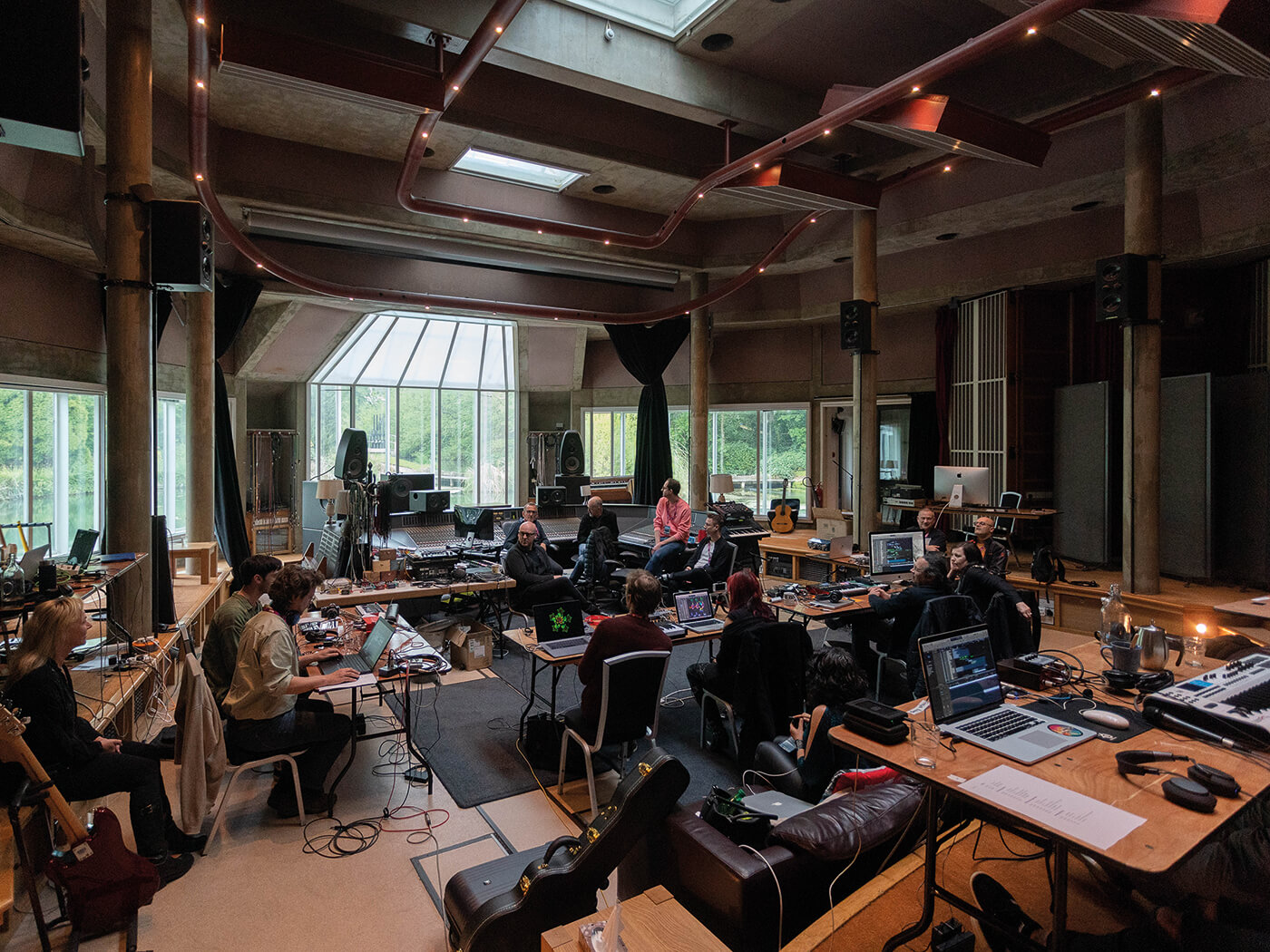For more tips and tricks, check out our essential guides.
18 tips we learned at Beatcamp for a successful music collaboration
Here are some helpful tips to guide you through the often daunting prospect of collaborating with other musicians and producers.

During our time at Real World Studios for the Beatcamp collaborative weekend recently, we examined the art of successful collaboration first-hand. Here are several tips to guide you through the often daunting prospect of music production with other people…
Working with new people
Jump in and don’t be scared
Because many producers and songwriters work in isolation, it’s often assumed that everyone else works that way, but actually, in a lot of cases in the professional world, a great many people are involved in a production. So view your collaboration as a learning experience to help prepare you for the ‘pro’ world.
You need to know
Get to know the other person socially, away from the studio/project. Learn about their musical background, their personality and share your own. Get to know their strengths and weaknesses and then you’re better equipped to play to both of your strengths.

It’s not just about you
You’ll need to respect the other person’s point of view and input, so be really open to ideas and try not to be too precious about any ideas you bring to the table. This is a flexible conversation, particularly in the early stages.
Agree a concept before you begin
If possible, try and get a concept and a vision together for the track before you meet up. This could be as simple as agreeing a visual or theme for the track – or you could share some inspirations. These could range from other music, a book, a photo, a painting, even a film. You’ll start to align your thinking quicker if you have something to focus on.
Pick and choose
Taking the previous tip even further, you could even agree to produce something that blends different concepts or blends genres – so you’re not simply ‘just writing a dance track about x’, but you’re using these inspirations as starting points.
Deal with practicalities
Agree on the specifics of your session management, including naming conventions and DAW track colour-coding, before you record anything. And stick to it. This makes things much easier as the sessions continue and the track grows.
Arranging a track
Give yourself constraints
If you have too many options (in terms of both technology and song concept), you might never get anything done. So set yourself some boundaries – the length of the tune, how many tracks, the various sections – focus on them and stick to them.
Expect the unexpected
The idea of collaboration is that you are putting together two ideas and getting a completely different result that you are not going to get on your own, so be prepared and open to go somewhere you haven’t been to before. That’s not to say you shouldn’t be confident in your ideas, but don’t worry if it’s starting to sound like something you wouldn’t normally make.
It’s not always going to be easy
If things grind to a halt, then do realise that it is never easy. Making music isn’t as easy as listening to it, whether you’re collaborating or not. There will always be ups and downs, but maintain a positive and amiable disposition and keep things constructive and the disagreements will diminish.

Be prepared to self-edit
Sometimes, you have to be brutal and remove a lot of what you have done to make space for your collaboration. This goes back to not being too precious. This is a joint piece of music and you can’t control all of it. Besides, your partner’s ideas may add crucial hooks and elements that you would never think of, and improve the track tenfold.
Stand back before going too far
Periodically, take time to look at the bigger picture – the song – before concentrating too much on one element of the mix. Is the song beginning to take shape, is it pulling you in an interesting direction? Discuss this with your partner.
If it’s easy, go with it
If the music is flowing and you’re working smoothly with your collaborator, then enjoy the process and go with it, don’t get too pedantic about getting things right first time. You can always tweak, refine and get clever with it later.
Mixing and finishing
Keep the new ideas
Make saves of any new mixes or ideas that sound like they’re taking the song away from the original concept. An original idea can explode into multiple different ideas or spawn new ones, so keep them separate (and name them logically). Revisit them once the project in hand is complete.
Get fresh ears
The beauty of a collaboration is that you have a pair of fresh ears on hand for long mixing sessions. So if you think you’ve been mixing for too long, hand the reins over to your partner take a break, but communicate your intentions and listen to theirs – so you’re both on the same page with the mixing process.
No one dominates
If you agree that one person’s idea should dominate the final song – the main vocal, the main hook, or whatever – then that is totally fine if you both feel the same, but do try and incorporate obvious ideas from both parties in the end result; otherwise, it’s not a true collaboration as such. This is better for generating a shared sense of satisfaction once the track is complete, potentially yielding further collaborations.
Finish the track
Unless you agree to work on the track further, agree a cutoff time or other end point so that when the track is finished, it’s finished. Better still, pass it over to another willing mix or mastering engineer once you’re happy.
Discuss other ideas
Just because the track has worked out in a particular way, that doesn’t mean that it couldn’t morph into something else or that your collaboration could be further pursued in the future. Talk about what might have been with this track and how your partnership could evolve and you might just start a long-term and fruitful musical relationship.
Don’t make it painful
If you find yourself disagreeing with your partner on how the track is progressing at this late stage, then the last resort is to go away and work on it separately. There’s no shame in doing this, as your original collaboration and work could easily form two great new tracks!